- California Assembly OKs highest minimum wage in nation
- S. Korea unveils first graphic cigarette warnings
- US joins with South Korea, Japan in bid to deter North Korea
- LPGA golfer Chun In-gee finally back in action
- S. Korea won’t be top seed in final World Cup qualification round
- US men’s soccer misses 2nd straight Olympics
- US back on track in qualifying with 4-0 win over Guatemala
- High-intensity workout injuries spawn cottage industry
- CDC expands range of Zika mosquitoes into parts of Northeast
- Who knew? ‘The Walking Dead’ is helping families connect
S. Korea’s hip hop stars Dok2 and company reveal roots to LA
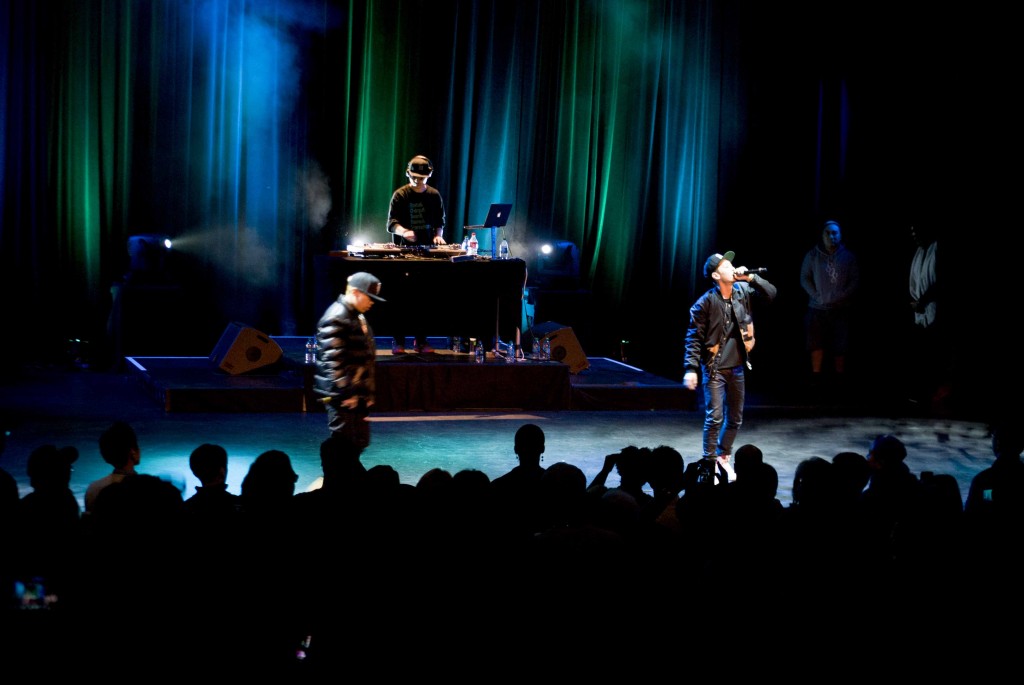
South Korean hip hop artists Dok2, left, performs with The Quiett, right, and DJ Son at the University of Southern California’s Bovard Auditorium on Nov. 17, 2015. (All photos – Brian Han )
By Brian Han
How in the world did hip hop, both a musical genre and cultural movement born from the streets of the South Bronx, make its way across the Pacific to South Korea?
That question drove the discussion on Tuesday at the University of Southern California during an event hosted by the school’s Visions & Voices organization.
A packed house of over one thousand students and fans attended the question-and-answer session with an artist panel that featured co-CEOs of 1llionaire Records Dok2 and The Quiett, as well as hip hop duo Garion (MC Meta, Naachal) and DJ Son.
For those who aren’t familiar, Garion pioneered the hip hop movement in South Korea, so it wasn’t a surprise when Dok2, The Quiett and DJ Son all revealed that MC Meta and Naachal were responsible for the first Korean hip hop record they ever bought.
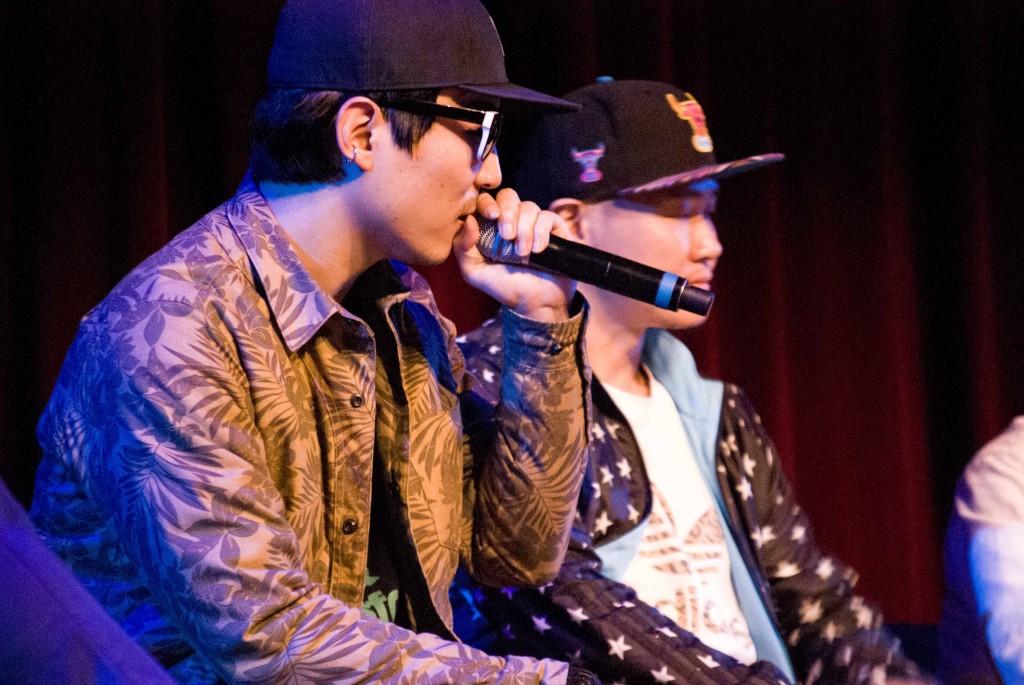
DJ Son responds to a question at USC’s Bovard Auditorium on Nov. 17, 2015 about his first record purchase. He cited one of Garion’s albums as the first Korean hip hop CD he ever bought.
As for U.S. imports, answers tended to vary.
“I was really focused on Naughty By Nature,” The Quiett said of the Grammy-Award winning trio from New Jersey. “I really loved the flow of Treach (one of the members of NBN)… that was my first hip hop CD.”
“I bought a bunch of CDs at one time,” Dok2 said of his first purchase. “It was Lauryn Hill, Nas, DMX when I was like six years old. But right now? It’s Meek Mill, he’s my guy. I love him.”
As for Garion, the duo cited Wu-Tang Clan as a major influence particularly in their earlier works.
Even though American hip hop dates back to the early 1970s, it wasn’t until the late 90s that the movement made its way to South Korea according to moderator and PhD candidate Kelly Myoung-Son Song.
“There were versions of hip hop in South Korea even in the late 80s and early 90s, but this is not what what we would normally call hip hop,” MC Meta said in response to a question about the genre’s roots. “It was more dance-infused. So in the mid-90s, we finally got samplers that we could use to make music. This is kind of of how the underground movement got started.”
But what makes the music unique in comparison to its predecessor?
“Good music is good music,” MC Meta said, “What makes it distinct is language and that in itself has a different sound. Then there are themes that appeal more to South Korean sensibilities.”
Part of the image that 1llionaire crafts through their music and videos is one of extravagant wealth. One of their primary themes focuses on money, something that’s not necessarily unique given the type of music they create.
“We’ve earned a lot of money, we don’t have a goal, but we strive for money, but also happiness,” The Quiett said.
“I don’t know, I just care about today, my present,” Dok2 (pronounced do-ki) said speaking more about the possibility of a legacy. “I just do what I love, if people love it, thank you. If not, I don’t care. I’m not here to leave anything special, I just do what I love.”
Dok2 is certainly enjoying the ride, and so is the rest of the world as his music and those of his peers are steadily gaining global appeal.
“It’s great, I never thought about this type of thing back in the day,” The Quiett said of non-Korean fans outside of his home country. “We have fans everywhere and it’s crazy. It’s like a dream.”
One thing that the panelists seemed to agree upon, although briefly, is that the Korean hip hop community should be distinguished from the umbrella term K-pop, or hallyu, which consolidates all of the country’s mainstream entertainment exports.
One student asked if rappers in idol groups, particularly female ones, were considered legitimate artists in their eyes. The crowd began murmuring and hoping for some kind of controversial response.
Dok2 flashed a quick smile and grabbed the mic.
“I don’t really care about idol rappers,” he responded. “What we do is in a different category. We’re more hip hop than them. I don’t even know if they write their own lyrics.”
The artists followed up the panel with a performance that had the entire crowd on its feet.
“Tonight, we infused a lot of west coast style,” MC Meta said during Garion’s set. “Even if you don’t understand the words, we hope you can feel the beats and rhymes.”
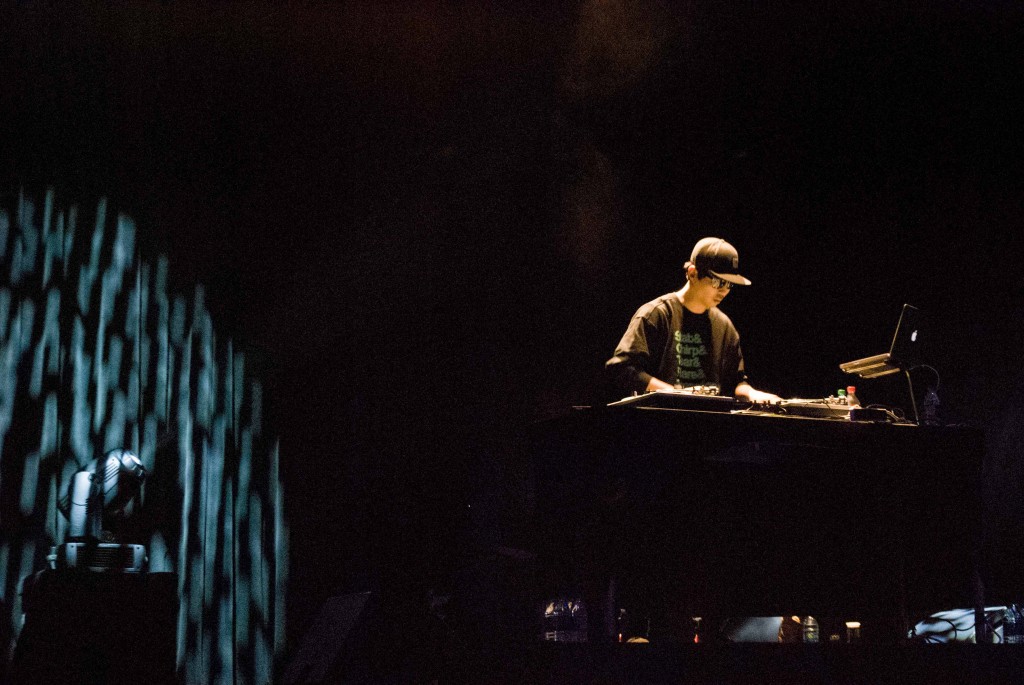
South Korean musician DJ Son performs a solo set before introducing Garion to the stage at USC’s Bovard Auditorium on Nov. 17, 2015.







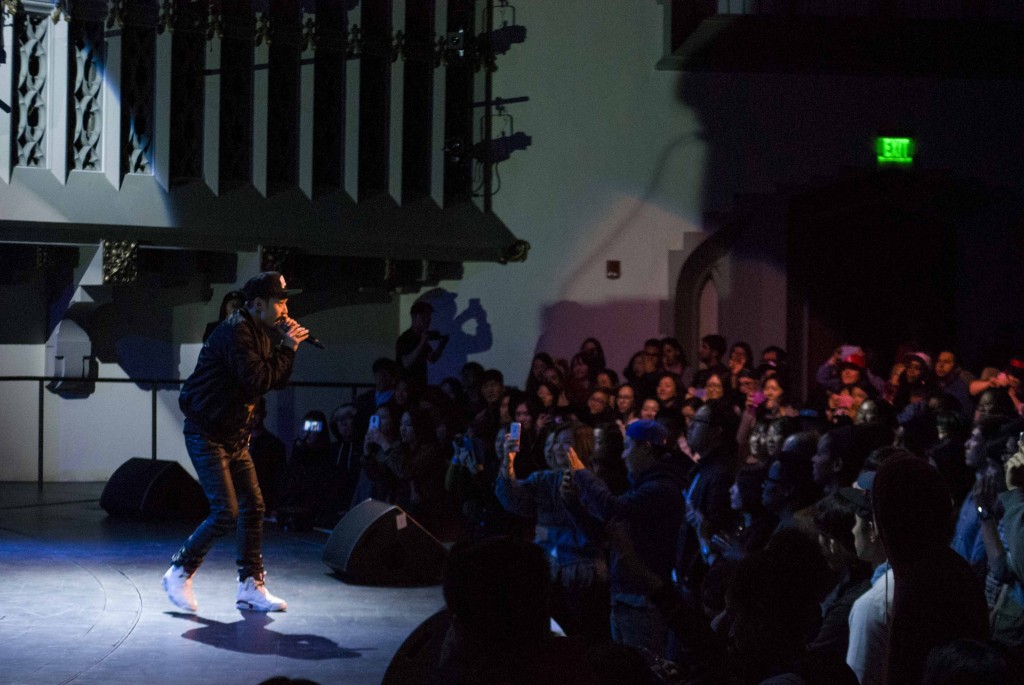
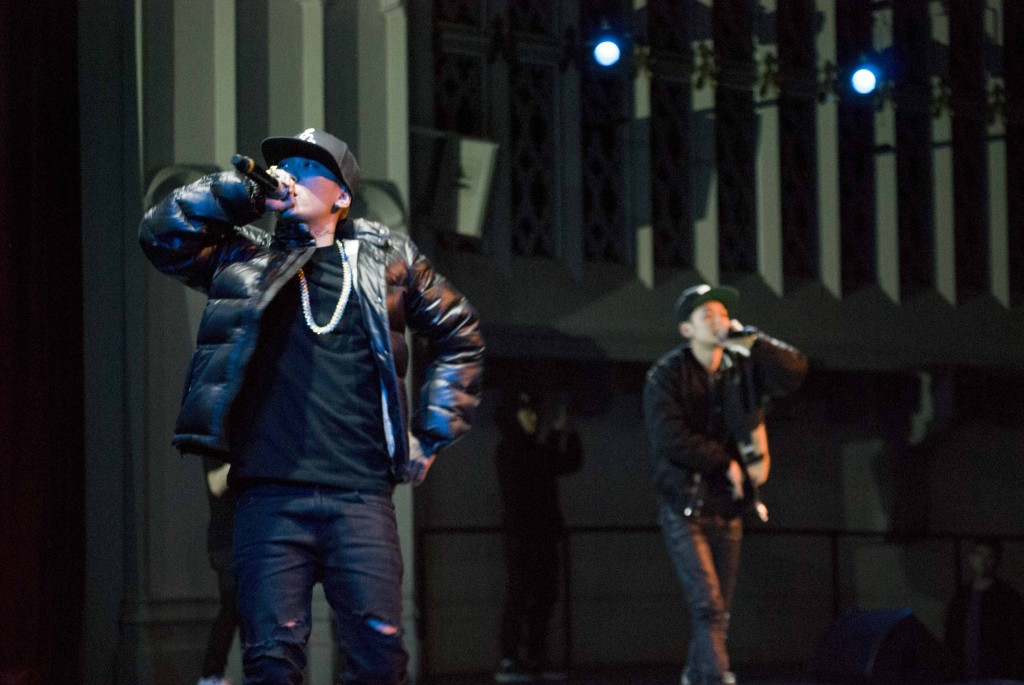



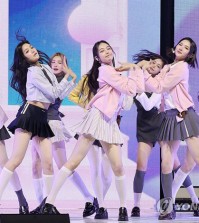





Pingback: Dok2, The Quiett, Garion talk about South Korea’s hip hop roots in LA, Dok2 calls out idol rappers “I don’t even know if they write their own lyrics” | Entertainment |Video | Lyrics